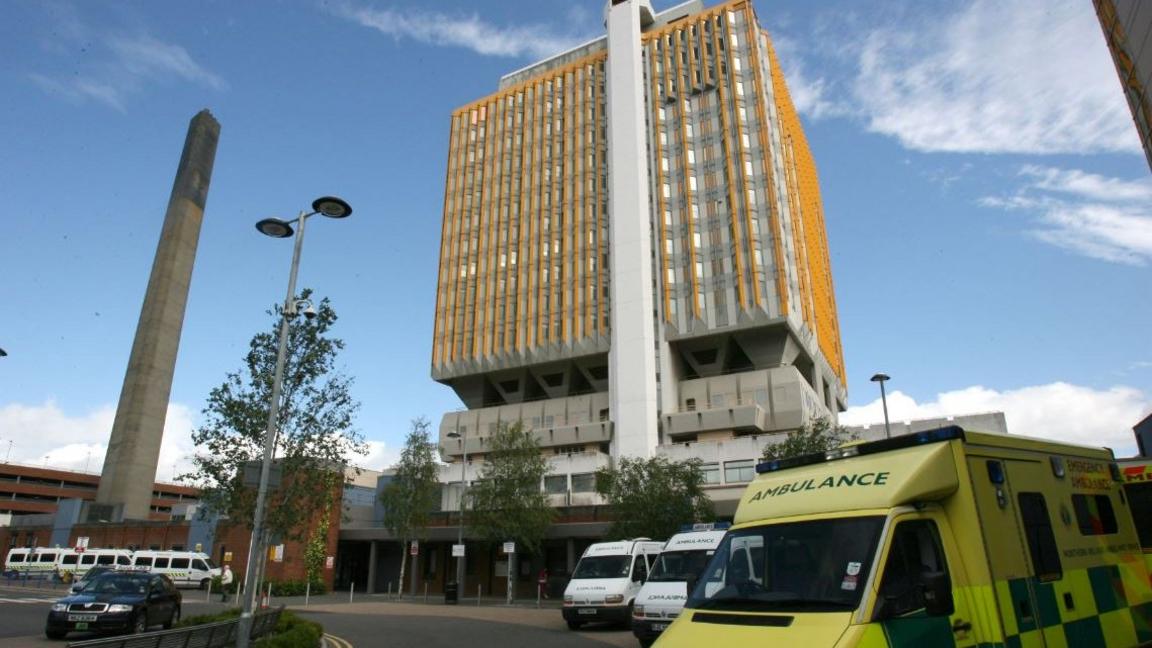Coronavirus: Nightingale hospital in NI being stood down
- Published
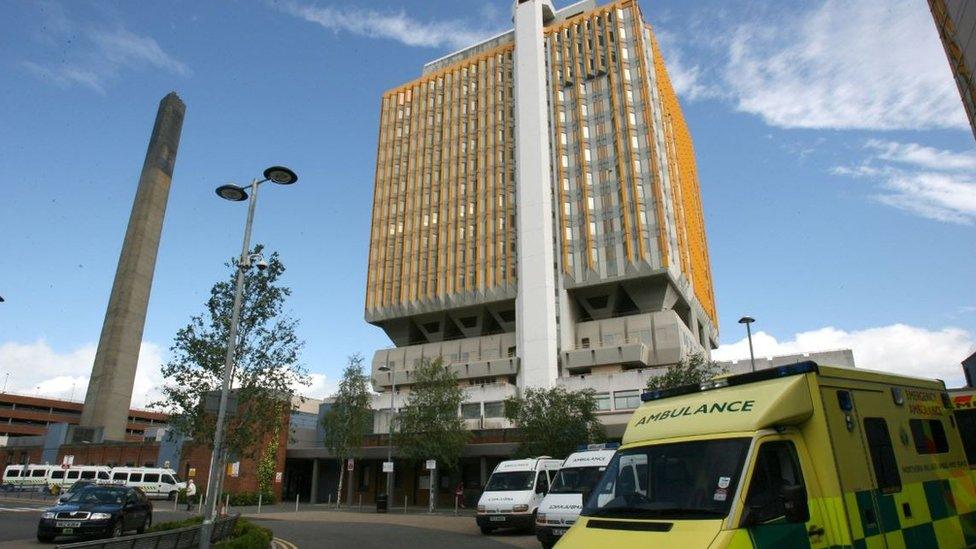
The distinctive tower block became a 230-bed unit staffed by a team drawn from across Northern Ireland
The Nightingale Hospital in Northern Ireland is to be temporarily stood down, the health minister has said.
Belfast City Hospital's tower block was turned into a 230-bed unit for critically-ill patients last month.
Nightingale hospitals are non-permanent facilities that were set up across the UK to deal with the expected surge in coronavirus patients.
Robin Swann said the hospital could still be used, if modelling suggested a second wave of the virus.
Speaking at the executive's daily press conference on Wednesday, Northern Ireland's Chief Medical Officer Dr Michael McBride described the de-escalation of the use of the hospital as "significant".
"The threat of our health service being overwhelmed was real - make no mistake about that."
He said the number of people requiring critical care in Northern Ireland had fallen to a "low surge" level, but that the situation was fragile.
"We have to be ready to scale back up the services in critical care if that is required," added Dr McBride.
Earlier in May, the British government said the Nightingale Hospital in London was being stood down and would no longer admit patients.
Mr Swann was asked how much of the Nightingale's 230-bed capacity was used during the peak of the outbreak, and Robin Swann replied that at one stage there were "over 30 occupants in ICU beds" in the hospital.
He said the Nightingale had been "a key strategic tool" in tackling Covid-19, adding there had been a "concerted effort across Northern Ireland and it worked well".
Mr Swann said it was "testimony" to the work of staff at the hospital that the health service was now in a position to stand it down.
'Fight back is only beginning'
Mr Swann also outlined how his department is working to increase support for the care home sector.
Almost half of Covid-19 deaths have been recorded so far in Northern Ireland's care homes, but residents and staff are only tested where there is a suspected outbreak, or if they are new entrants to the care home sector.
There are 75 confirmed outbreaks of the virus in care homes, with a further 35 suspected outbreaks.

In other developments on Wednesday:
First Minister Arlene Foster says the NI Executive's five-step plan for easing lockdown will hopefully be implemented "long before" December
Premiership clubs in NI will hold a meeting later to discuss the outcome of the season after the NI Executive's planned return of sport
There will be a three-month suspension on the recovery of benefit overpayments and loan repayments, the Department for Communities has announced
A fund for artists and performers financially affected by the outbreak has had to close temporarily due to a high level of demand
BBC News NI's Niall McCracken looks at whether homeschooling during the pandemic is working for all children

Mr Swann rejected suggestions that care homes had been "forgotten" about during the pandemic, and pointed to a mobile testing service for care homes that began this week, operated by the NI Ambulance Service.
The minister said up to 40 health and social care nurses are being deployed to support testing - this will be integrated into the support teams currently in place.
Homes are also asked to check staff and residents twice a day for symptoms, including temperature - as symptoms in people in care homes may be atypical.
That testing will be extended into supported living, the minister added.
The minister is also actively considering more financial support for care homes, after a £6.5m fund for the sector was announced last month.
The Stormont Executive is expected to focus on the issue of supporting care homes and staff during the pandemic at its meeting on Thursday.
As well as thanking staff, Mr Swann said the social care sector had been "struggling for years and as a whole was not fit for purpose".
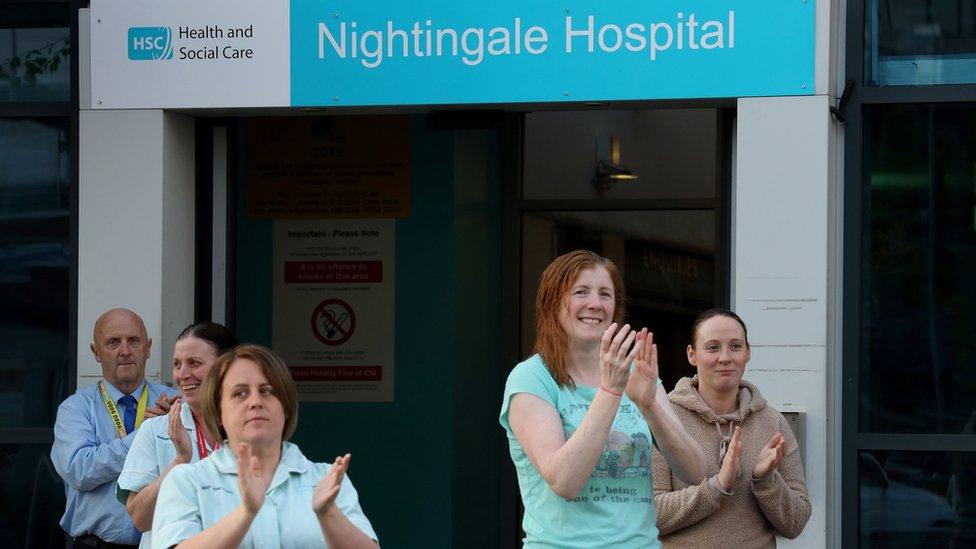
Dr McBride said routine health services had been paused while the system focused its efforts on tackling the virus, and work would now take place to restart those services - but stressed that the threat of the virus has not subsided.
"The real work has only just begun," he said.
"The fight back must continue every day and you and I need to work together, to look out for each other."
On Wednesday, a further two coronavirus-related deaths were reported by Northern Ireland's Department of Health, taking its total, mostly comprising of hospital deaths, to 449.
One of the deaths happened since Tuesday, while the other occurred earlier but has now been added to the department's figures.
The death toll is likely to be higher when all deaths in the community are recorded.
Across the UK, 494 more people have died bringing the death toll up to 33,186, while in the Republic of Ireland, 10 more people have died with Covid-19 bringing the total death toll to 1,497.

EASY STEPS: How to keep safe
A SIMPLE GUIDE: What are the symptoms?
CONTAINMENT: What it means to self-isolate
HEALTH MYTHS: The fake advice you should ignore
MAPS AND CHARTS: Visual guide to the outbreak
VIDEO: The 20-second hand wash

- Published28 May 2021
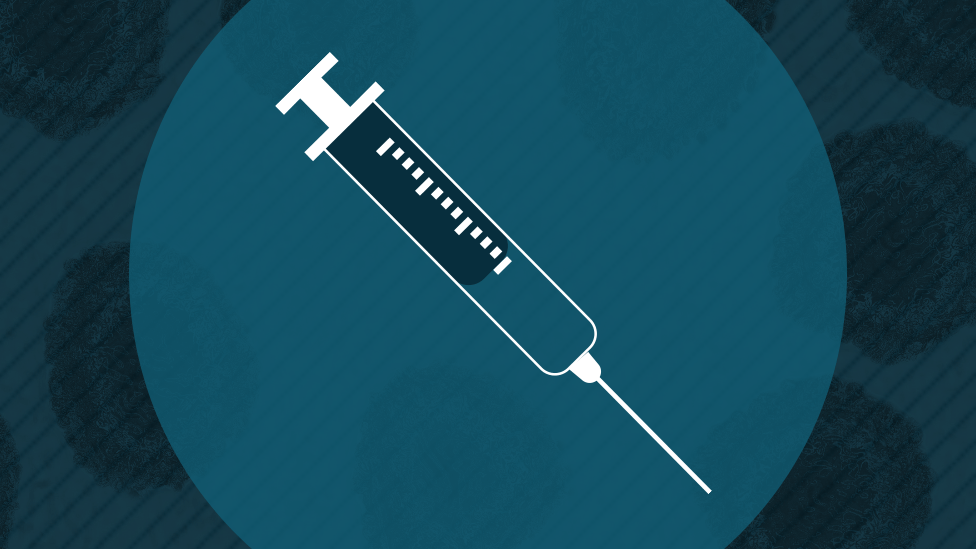
- Published20 April 2020
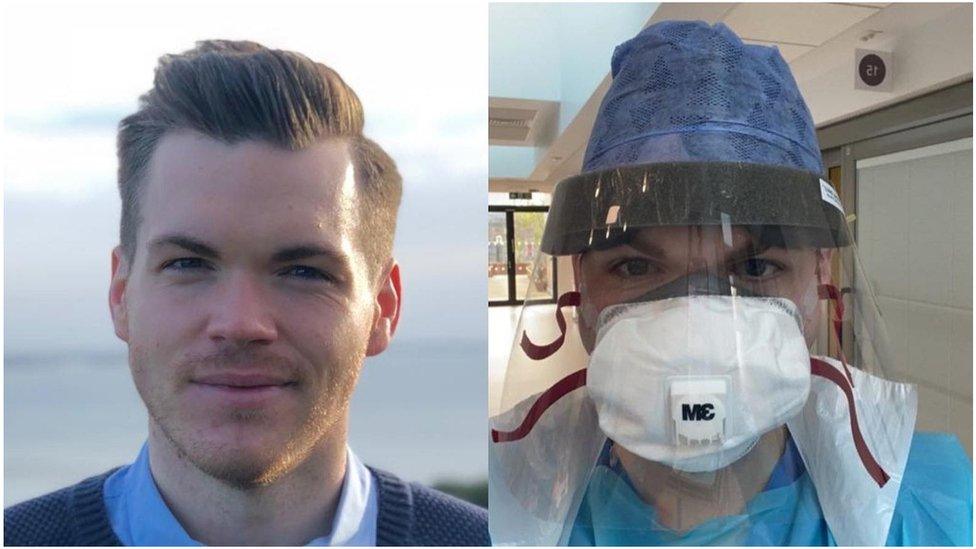
- Published2 April 2020
